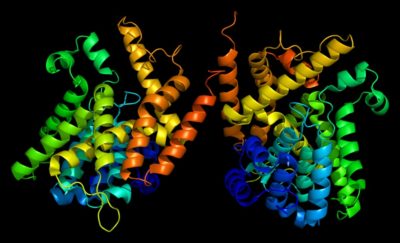University of Queensland researchers have finished studying the genetics of 64,641 children, ages 3-18.
And yes, that’s the largest such study in the world.
What did they find?
Well, you can read Neuroscience News’ rundown, but here’s their money sentence:
“Children who had similar levels of anxiety and depression were also alike, genetically.”
Further, the researchers noted that these genetics often overlapped with adults who had depression and anxiety in previous studies.
In other words, this supports the multitude of research that seems to be continually finding specific genes associated with depression and anxiety.
In fact, as far back as 2013, researchers had pegged at least 11 genes that put individuals at an increased risk of developing anxiety disorders.
A 2016 review suggested that panic disorder, social anxiety disorder, and generalized anxiety disorder were all linked to specific genes.
And a 2019 study found that PDE4B variants were associated with stress-related and anxiety disorders.
I could go on, and on, and on….. because every year, multiple studies find new genes associated with the etiology of psychiatric disorders.
In keeping with the caps-lock nature of genes, I will say this…
None of these genes are named the YOU ARE DEPRESSED BECAUSE OF A LACK OF FAITH gene.
Or, the YOU ARE ANXIOUS BECAUSE YOU DON’T JUST ‘GIVE IT TO GOD’ ENOUGH gene.
You’re not responsible for your genetics, and yet your genetics are roughly 40% responsible for your anxiety disorder (that’s the current estimate, although some studies suggest it’s as high as 67%).
The point is — if a Christian shames you for your anxiety or depression, remind yourself: You’re not responsible for your condition.
We are, however, responsible for how we react to that shaming from Random Happy Exhorting Christian.
They are obliviously cruel in pinning your condition on something else. But that’s on them.
We don’t get to choose our genetics, but we can choose how we react.
I will often tell people about these studies, but if they dismiss it as “fake, secular science,” then it’s time to remember that the Proverbs has a lot to say about shutting up when it’s clear someone doesn’t want to hear the truth.
And so we move on, and an estimated 25% of Christians with mental health conditions will move on to a different church because they feel so misunderstood at their own.
It’s no longer a place of worship. It’s a place where they feel worthless.
But God knows the truth.
And think of that phrase, again, “God knows.”
He knows all about the genes the scientists do, and the million more they haven’t found, and he knows how hard it is for you to do the “easy” things, because you just weren’t wired the way your Exhorting Christian Neighbor was.
One more thing.
I often think of the shared suffering of the thief on the cross and Christ.
Only they understood the agony of the afternoon, and in that shared suffering, they talked of paradise together — the way two soldiers often talk of home during the worst of times.
Jesus knows, and you know the agony.
And sometimes, that’s all I need to know to keep going.
Find a psychiatrist here, via Psychology Today.
Find a therapist here, via Psychology Today.
[Photo: The PDE4B gene, via EMW, Wikipedia]

